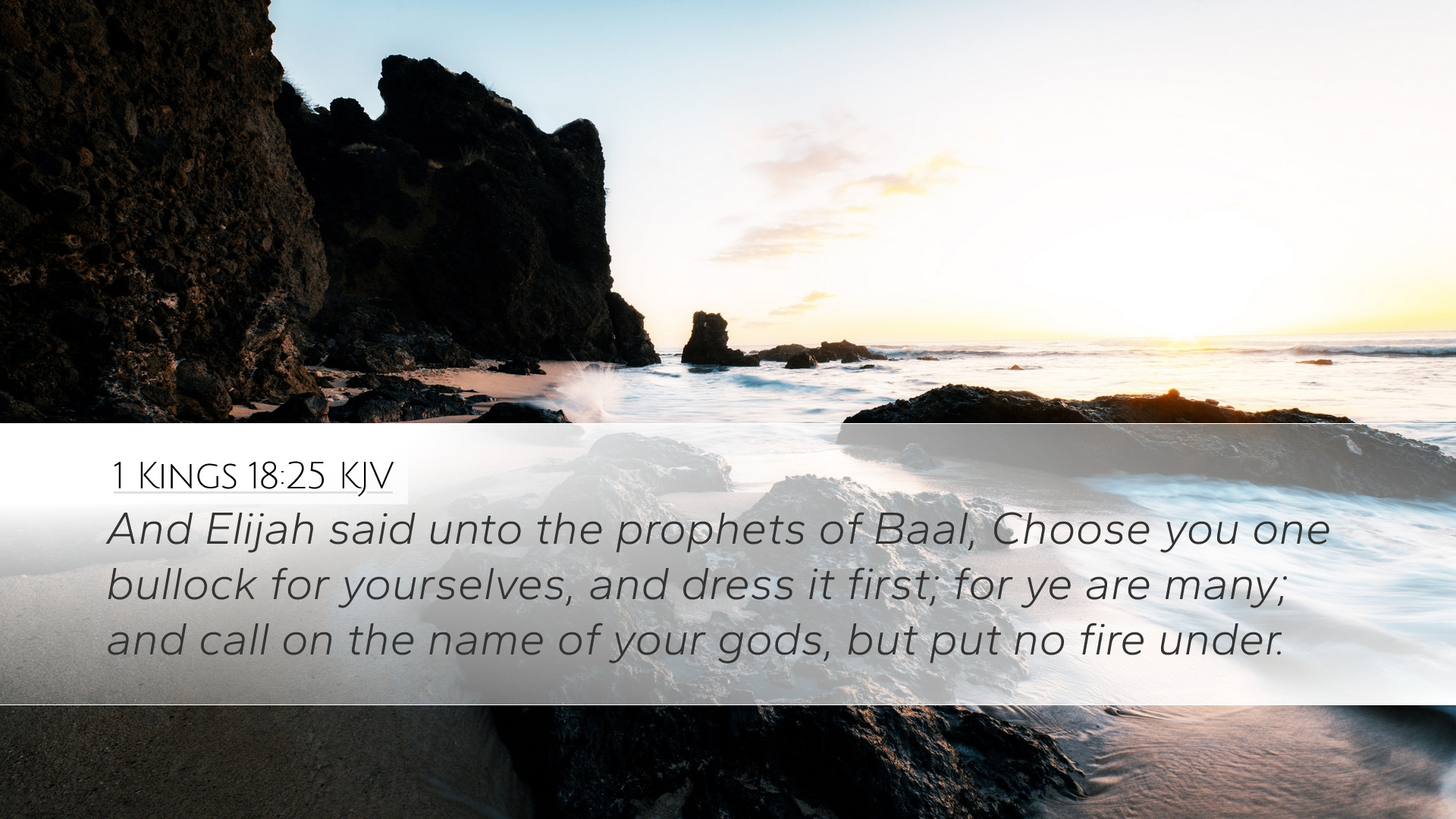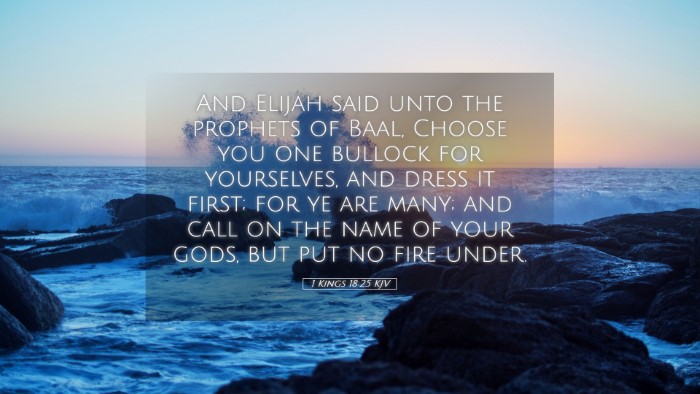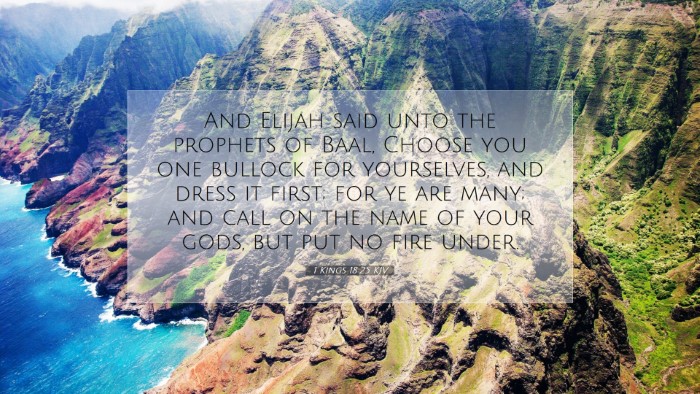Commentary on 1 Kings 18:25
Verse Overview: 1 Kings 18:25 states, “Then Elijah said to the prophets of Baal, ‘Choose one of the bulls for yourselves and prepare it first, for you are many; and call on the name of your god, but put no fire under it.’” This verse initiates the dramatic showdown on Mount Carmel between the prophet Elijah and the prophets of Baal, setting the stage for a demonstration of God's power.
Contextual Analysis
This verse must be understood within the larger narrative of the confrontation between Yahweh and Canaanite deities during a time of apostasy in Israel. Israel had turned away from God to worship Baal, thus challenging the covenant relationship established with God.
Commentary Insights
- Elijah's Boldness: As per Matthew Henry's Commentary, Elijah’s willingness to confront the prophets of Baal reflects his deep faith and conviction. He stood alone against many, embodying the principle that God’s truth can prevail despite overwhelming opposition.
- Choice of the Bull: According to Albert Barnes, the choice of the bull signifies purity and value, as it was a common sacrifice in worship. This demonstrates a serious commitment from the prophets of Baal, though misguided in their faith.
- The Call to Action: Adam Clarke notes that Elijah’s command for the prophets to prepare their bull first indicates confidence in the power of God to respond. The call to prepare without fire invites a comparison that emphasizes the miraculous intervention of the true God.
Theological Implications
This confrontation has deep theological implications regarding the nature of true worship. Elijah's challenge reminds believers that faith without works is dead (James 2:26), as demonstrated by the actions of the prophets of Baal, who fervently attempted to call upon their god without results.
Furthermore, it illustrates God's sovereignty over creation, for He alone holds power over fire and the elements (see Lamentations 3:38). The stark contrast between the impotence of Baal and the power of the Lord showcases God’s unyielding authority.
Historical Context
Elijah's confrontation takes place during the reign of King Ahab, the notorious king of Israel who promoted the worship of Baal through his wife Jezebel. This period reflects a significant turning point in Israel’s religious practices, where the worship of Yahweh was being overshadowed by pagan practices.
Exegesis of Key Terms
- Prophets of Baal: This term refers to the many followers of Baal, highlighting the collective effort in their worship practices which were popular in Israel but contrary to the teachings of the Torah.
- Prepare: The instruction to prepare the sacrifice indicates a well-organized worship practice, underscoring the seriousness of the occasion and the efforts the prophets made to invoke their god.
- Call Upon: This phrase denotes the act of invoking a deity, showcasing the desperation of the prophets who believed in their god’s supposed power to respond to their cries.
Practical Applications
This verse can serve as a reminder for contemporary believers and leaders in the church to evaluate the authenticity of their faith and practice. Like Elijah, they are called to stand firm and confront the ideologies and practices that contradict the truth of Scripture.
Moreover, the verse encourages a deeper understanding of the nature of divine response. It teaches that relying solely on ritual without sincere faith will yield no results. Effective ministry is rooted in genuine relationship and dependence on God.
Conclusion
1 Kings 18:25 encapsulates a moment of monumental importance in Israel's history, as Elijah's challenge to the prophets of Baal became a turning point for the nation. It serves as a powerful reminder of the necessity of true worship, the significance of God's authority, and the profound truth that in the face of falsehood, the true God reigns supreme.


